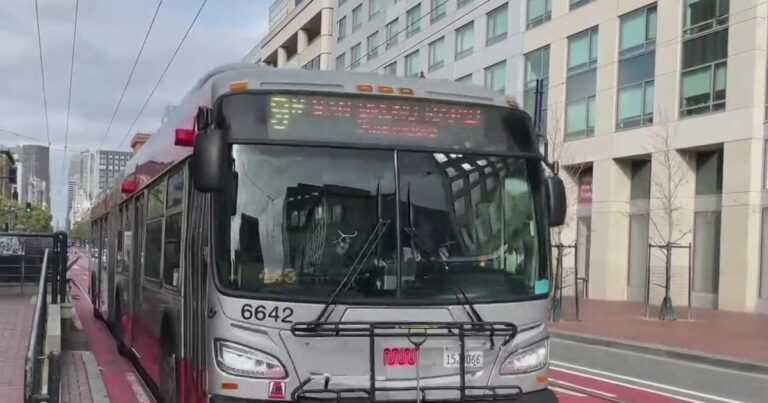Muni Transit Agency Announces Service Reductions Amid Budget Deficit
The San Francisco Municipal Transit Agency (Muni) is set to implement service cuts to its public transportation network to address a significant budget deficit. Originally projected at much higher levels, the service reductions have been minimized following outreach efforts aimed at lessening the impact on riders.
Budget Constraints and Necessary Cuts
Muni is responding to a projected budget deficit of $50 million for the upcoming fiscal year. The agency has acknowledged the financial challenges posed by decreased ridership in the wake of the COVID-19 pandemic, which has led to substantial revenue shortfalls.
To mitigate the effects of these financial constraints, Muni’s board has decided to cut services on five transit lines, with the changes scheduled to take effect on June 21. Riders consulted by KPIX expressed that while they were disappointed, the cuts aligned with their expectations considering Muni’s current situation.
Community Reactions
Muni rider Katie Petrucione, who commutes daily from her home near San Francisco State University to her job at City Hall, highlighted her reliance on the transit system: “I work at city hall and live out near San Francisco State, and it’s just easier to get back and forth on Muni,” she stated, emphasizing the convenience of not having to deal with parking.
Petrucione further commented on the necessary cuts, noting, “Given the financial crisis that they face, it feels like a reasonable thing for them to do. I think they will have to make some trade-offs.” Another rider, Kristin Frick, echoed these sentiments, saying, “I think they’re trying to consolidate and do the best they can with the budget they have.”
Other Financial Solutions
In addition to service cuts, Muni plans to increase parking fees by 25 cents at all meters, aiming to generate additional revenue. The agency is also looking to support public transit funding through the Connect Bay Area Act, which proposes a half-cent sales tax increase in San Francisco, Alameda, and Contra Costa counties, set for a ballot measure in 2026.
While some community members have expressed hesitance about increasing the sales tax, others argue it is crucial to reinvest in public transportation. Petrucione stated, “I think we as a city have to invest in public transit… the city’s mantra for a long time has been transit first, and if we want to abide by that, we have to spend money on it.”
Conclusion
As Muni navigates this challenging fiscal landscape, the implementation of service cuts and increased fees reflects the profound impact of budget constraints on public transportation in San Francisco. The transit agency’s decisions underscore the importance of balancing financial sustainability with the need to provide reliable services for its riders.



